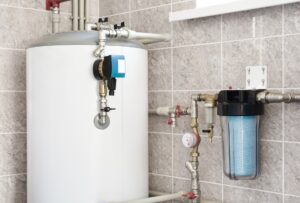Your boiler is highly important for heating your home. You may even use it as your water heater. So the idea of a boiler failure, especially during the winter season, is concerning. We know that you don’t want to be without home heating for even a day, especially in this area, so we want to help you get ahead of the problem. So how long do boilers last? Let’s talk about that.
Know the Warning Signs to Look Out For
A boiler has a few telltale signs that it’s getting ready to give up on you. Let’s outline a few of them so you can see if your boiler is nearing the end of its lifecycle.
Old Age
Boilers are expected to last for 10–15 years on average. That lifespan heavily depends on rigorous maintenance throughout the years, otherwise, you’re looking at the lower end of it.
Even a well-maintained unit typically fails around the 15-year mark. If you don’t know when your boiler was installed, whether it’s because you bought your current home with the boiler in it or there’s no documentation available, you can look near the serial number on the boiler for its manufacturing date.
While this doesn’t tell you how long it’s been operable in your home, it gives you something to go off of (and usually surprises homeowners). If your boiler was manufactured around 15 years ago, chances are it’s been operable for most of that timeframe.
Poor Heating
It simply doesn’t heat well anymore. Newer boilers that run into this issue usually have a straightforward issue, such as a pilot light malfunction or an issue with power being supplied to the unit.
Older boilers begin to fail in multiple areas. Various components age and lose efficiency over time, leading to a replacement being the most cost-effective option rather than replacing each individual part in an older boiler.
If you set the thermostat to the same temperature, but your home isn’t heating as well, it’s likely due to your old boiler beginning to fail.
Frequent Repair Needs
If you have to repair your boiler often, it’s a big red flag. Boilers endure repairs over that 10–15 year lifespan we mentioned earlier, but when they become a frequent occurrence, it’s time to consider a replacement.
A rule of thumb for many different HVAC-related units is that if the repair cost is 50% or greater than the price of a replacement unit, it’s time to upgrade. Add up the recent boiler repairs you’ve paid for and compare them against the cost of a new unit to determine if you’d have fewer headaches (and fewer repair requests) with a new boiler.
It’s Time to Consider a New Boiler
If this list confirms your boiler’s problems for you, it’s time to consider a new unit. An old boiler that just doesn’t work as well as it used to means that you’ll face a complete breakdown sooner rather than later. Get ahead of the curve, don’t delay, and schedule your boiler replacement before it becomes an issue.
Contact the team at ServiceMax for your boiler service needs. We are here for you, even when you need emergency services.
